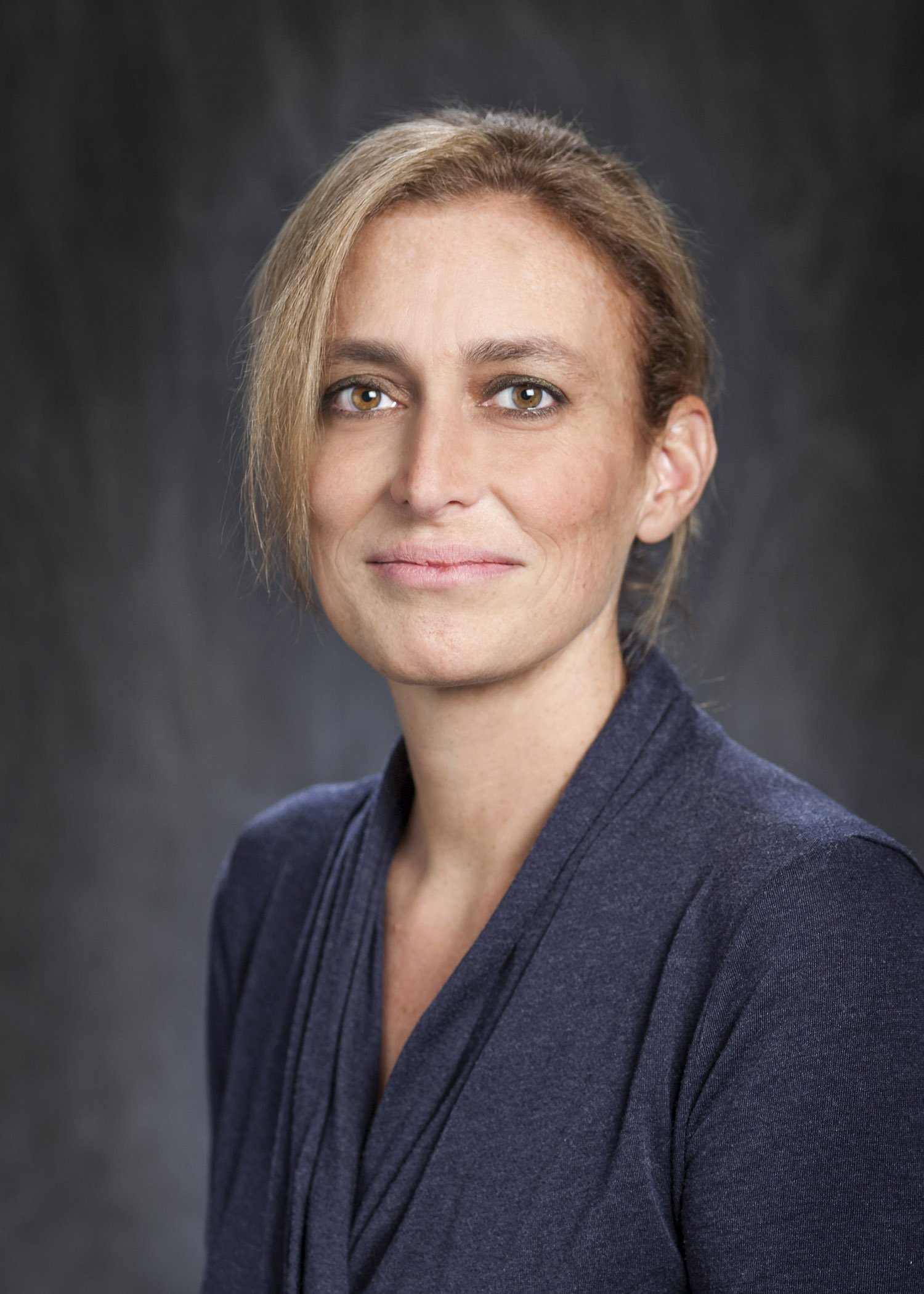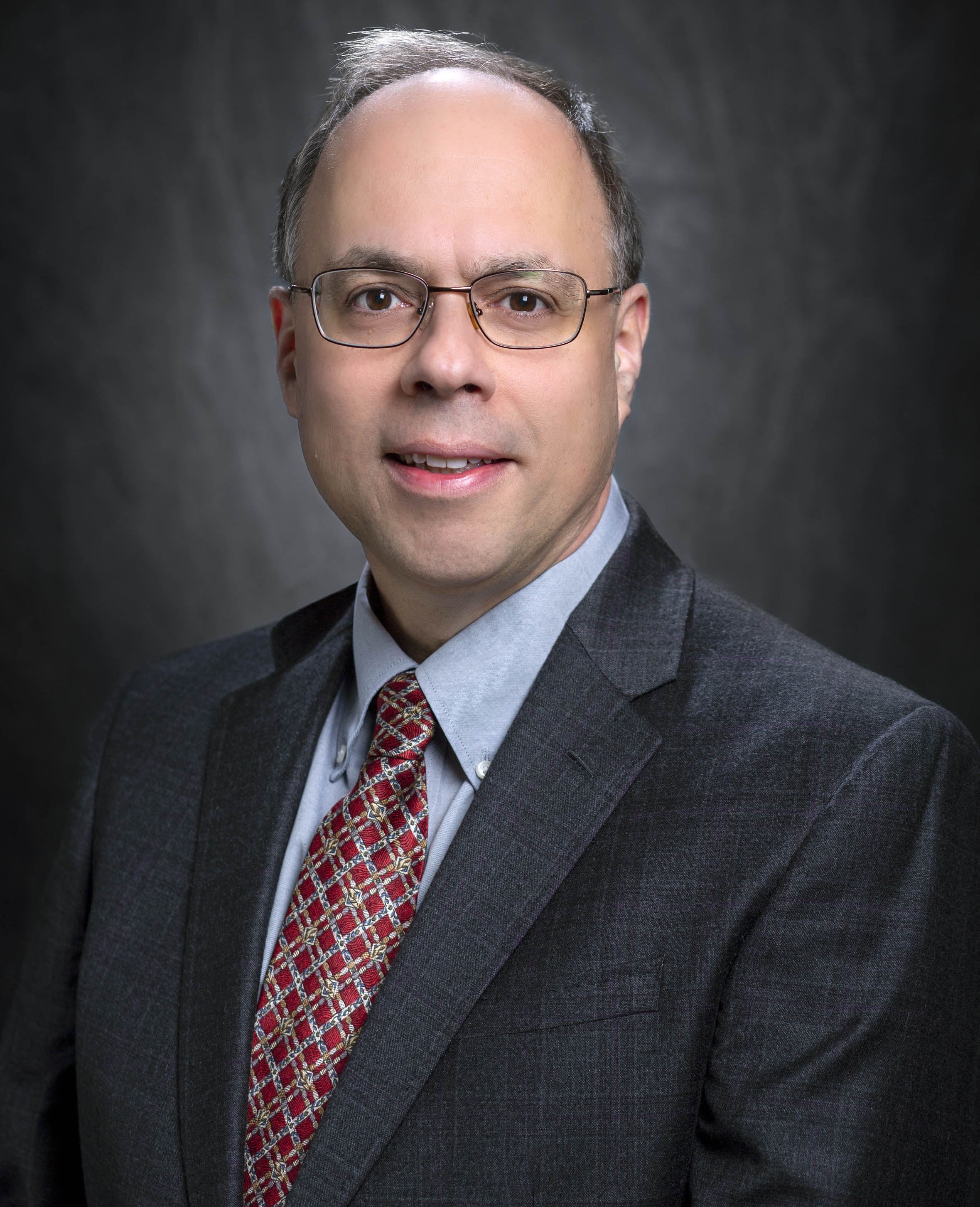AAAS Recognizes Two LSU College of Science Faculty Members
May 27, 2024
BATON ROUGE – Two faculty members from the College of Science, Sophie Warny and Joseph
Giaime, have been named fellows of the American Association for the Advancement of
Science (AAAS), joining the distinguished 2023 class of 502 honorees. The AAAS, renowned
as the world's largest general scientific society, recognizes individuals for their
significant scientific and societal contributions across 24 disciplines.

Sophie Warny, Professor in the LSU Department of Geology & Geophysics, Curator at the LSU Museum of Natural Science, and Director of the Center for Excellence in Palynology (CENEX)
Sophie Warny is an LSU Department of Geology and Geophysics Professor, as well as curator and director of education at the LSU Museum of Natural Science. Warny, who also serves as the chair of the American Association of Stratigraphic Palynologists (AASP), was honored for her exceptional leadership of the Center for Excellence in Palynology (CENEX), pioneering the development and application of forensic palynology and mentoring a remarkable cohort of geoscientists.
Established in 1993 by LSU and AASP, CENEX houses one of the world's largest collections of reprints and pollen reference slides. The center is dedicated to advancing palynology research and training future palynologists for roles in academia, forensic labs, allergy-related medical labs, and the oil and gas industry. Recent renovations have emphasized fostering collaboration among researchers, instructors, and students. As the center's director, Warny has tirelessly championed the expansion of CENEX's collections and facilities. She has also played a pivotal role in creating a state-of-the-art research environment for graduate students trained at CENEX. As of 2021, CENEX offers palynological analyses of bee pellets and honey through its new cost center.
“I am humbled and honored,” says Warny. “I hope this recognition helps me fulfill the mission of the AASP-TPS CENEX center, to promote the science of palynology, partner with the governmental agencies (DHS, USDA, etc.) and the industry, train graduate students, and foster the spirit of scientific research on all palynomorphs (e.g., pollen, spores, dinoflagellates). I am especially proud of our contribution to forensic palynology and the fact that my former PhD student, Dr. Ferguson, is now providing critical information to help law enforcement solve hundreds of drug smuggling cases and other crimes daily.”
Warny has mentored over 20 trainees, some of whom have pursued distinguished careers like Dr. Shannon Ferguson, now an expert in pollen analysis at the U.S. Customs and Border Protection in Chicago. In 2020, Ferguson received national recognition with the Samuel J. Heyman Service to America Medal for her crucial role in aiding law enforcement through pollen analysis, identifying drug origins, mapping trafficking routes, and reconstructing the travel histories of crime victims.
Dr. Francisca Oboh-Ikuenobe, Professor of Geology and Biological Science and Associate Dean for Academic Affairs at the College of Engineering and Computing, Missouri University of Science and Technology, put forward Warny's nomination for this prestigious honor. Additionally, Dr. Peta Mudie, senior research scientist (emerita) with the Geological Survey of Canada, and Dr. Samuel Bentley, Professor and Billy and Ann Harrison Chair in Sedimentary Geology in the LSU Department of Geology and Geophysics, provided strong letters of endorsement.

Joseph Giaime, Professor in the LSU Department of Physics & Astronomy and Director of the Laser Interferometer Gravitational-wave Observatory (LIGO)
Joseph Giaime, professor in the LSU Department of Physics & Astronomy and head of LIGO, the Laser Interferometer Gravitational-wave Observatory in Livingston, Louisiana, has been recognized for his distinguished contributions to the fields of gravitational wave research and multi-messenger astronomy.
LIGO, renowned as a pioneering institution dedicated to detecting gravitational waves predicted by Albert Einstein's theory of general relativity, operates collaboratively between Caltech and MIT, with support from the National Science Foundation. Situated in Livingston, Louisiana, LIGO observes cosmic phenomena like black hole mergers and neutron star collisions, offering invaluable insights into the fundamental nature of the universe. Under Joseph Giaime's guidance, LIGO has been instrumental in revolutionizing our understanding of astrophysics and cosmology. Its scientific mission is carried out by the LIGO Scientific Collaboration, in partnership with the Virgo and KAGRA collaborations.
“Prof. Giaime has been a leader in developing and implementing new technologies that greatly improved the LIGO sensitivity,” said Russell B. Long Professor and Department Chair Jeffery Blackmon. “His stewardship of LIGO-Livingston through key upgrades resulted in the detection of gravitational waves, a Nobel-prize winning discovery, and has ushered in a new area of gravitational wave astronomy.”
Giaime was part of the team that made the first detection of gravitational waves back in 2015, after decades of work, truly astronomical investments, and bordering-on-romantic scientific hope that it one day would be possible and overall worth the wait.
Joining LSU’s faculty as an assistant professor in 1999, Giaime received his Ph.D. in 1995 from MIT, where his research focused on laser interferometer design and vibration isolation systems for interferometric gravitational wave detectors. LSU’s investment in gravitational-wave detection spans more than half a century, among the longest of the institutions now involved in LIGO science; LSU faculty, students and scholars have had leading roles in the development of several generations of gravitational wave detectors.
Giaime was elected a fellow of the American Physical Society in 2009 for his contributions to gravitational wave physics, in particular key aspects of LIGO. He is also a member of the American Association for the Advancement of Science (AAAS), the American Astronomical Society (AAS), the International Society on General Relativity & Gravitation (ISGRG), and the International Astronomical Union (IAU).
LSU's AAAS Fellows include:
1901: William Stubbs, Chemistry
1955: George Lowery, Zoological Sciences
1960: Arlo Landolt, Astronomy
1966: James Eldred, Geology and Geography
1971: Barbara Strawitz, Chemistry
1980: Neil Kestner, Chemistry
1980: William Pryor, Chemistry
1984: O. Carruth McGehee, Mathematics
1992: Christopher D’Elia, Atmospheric and Hydrospheric Sciences
1994: Charles Groat, Geology and Geography
1995: Steven C. Hand, Biological Sciences
1995: Nancy Rabalais, Biological Sciences
1998: Meredith Blackwell, Biological Sciences
1999: Dominique Homberger, Biological Sciences
2001: Brian Hales, Chemistry
2002: Isiah Warner, Chemistry
2003: Kent Mathewson, Geology and Geography
2006: Jorge Pullin, Physics
2007: Mark Batzer, Biological Sciences
2007: Joel Tohline, Astronomy
2008: Kam Biu Liu, Geology and Geography
2009: Terry Bricker, Biological Sciences
2009: Barry Dellinger, Chemistry
2009: Jonathan Dowling, Physics
2009: Brooks Ellwood, Geology and Geography
2009: Cynthia Peterson, Biological Sciences
2009: Steven Soper, Chemistry
2009: Kalliat Valsaraj, Engineering
2010: Robin McCarley, Chemistry
2010: Saundra McGuire, Chemistry
2010: Erwin Poliakoff, Chemistry
2011: Huiming Bao, Geology and Geography
2011: Gary Byerly, Geology and Geography
2011: Michael Khonsari, Engineering
2012: Susanne Brenner, Mathematics
2012: Rongying Jin, Physics
2012: Marcia Newcomer, Biological Sciences
2012: Kenneth Schafer, Physics
2013: John Fleeger, Biological Sciences
2013: Robert Lipton, Mathematics
2014: George Stanley, Chemistry
2014: Carol Wicks, Atmospheric and Hydrospheric Sciences
2018: Prosanta Chakrabarty, Biological Sciences
2018: Anne Grove, Biological Sciences
2018: Kyle Edward Harms, Biological Sciences
2018: Wayne Newhauser, Medical Sciences
2020: Robb Brumfield, Biological Sciences
2022: Zakiya S. Wilson-Kennedy, Chemistry
2022: Samuel J. Bentley, Geology and Geography
2023: Edward Laws, Biological Sciences
2023: Sophie Warny, Geology and Geography
2023: Joseph Giaime, Physics